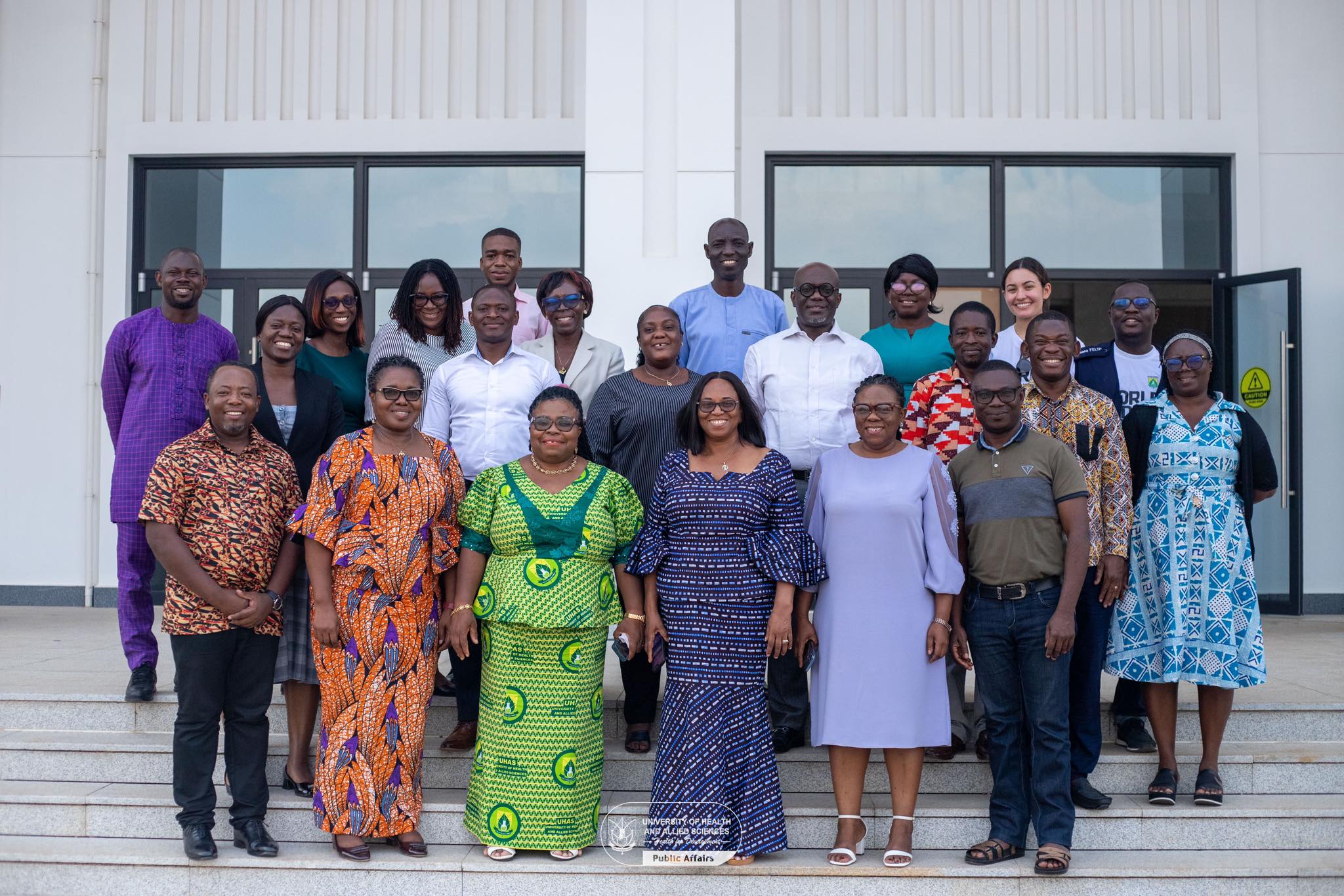
The University of Health and Allied Sciences (UHAS) Institute of Health Research (IHR) organized a four-day focused workshop on proposal development, directly supporting the World Health Organization (WHO) Alliance for Health Policy and Systems Research project.
UHAS IHR has been selected by the WHO Alliance for Health Policy and Systems Research as a Mentor Institute in Ghana for the joint initiative between the World Health Organization (WHO) and Gavi, The Vaccine Alliance on institutionalizing learning by mainstreaming embedded implementation research in country immunization programmes (MAINSTREAM). UHAS IHR, as part of its role as a Mentor Institute, is expected to provide technical mentorship in Implementation Research to local research teams. In view of this, UHAS IHR organized the workshop to enable research teams that had successfully passed the first stage of selection for the MAINSTREAM Ghana sub-grant on Implementation Research regarding vaccination in Ghana to refine their proposals as a requirement for the second stage of the selection process.
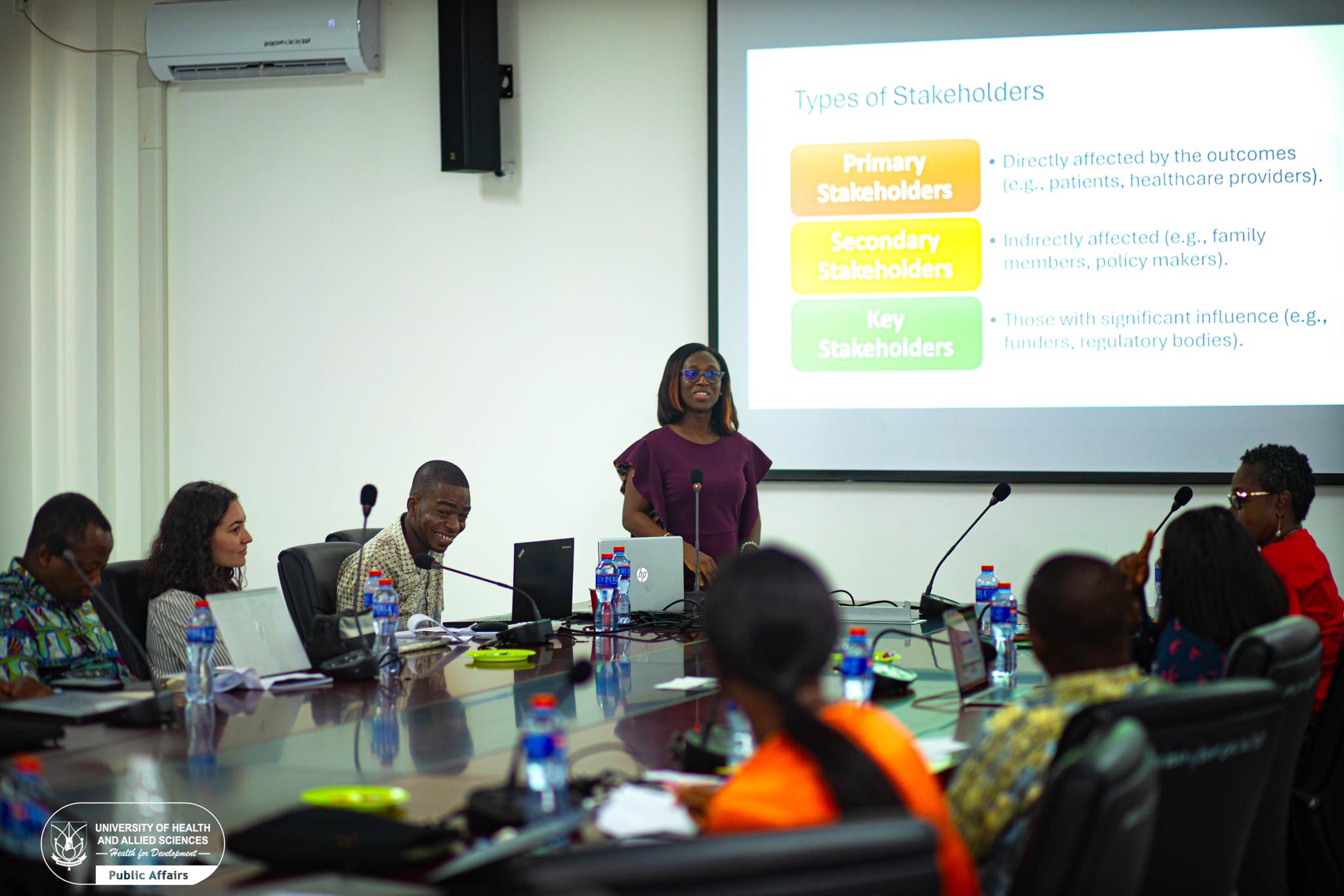 | 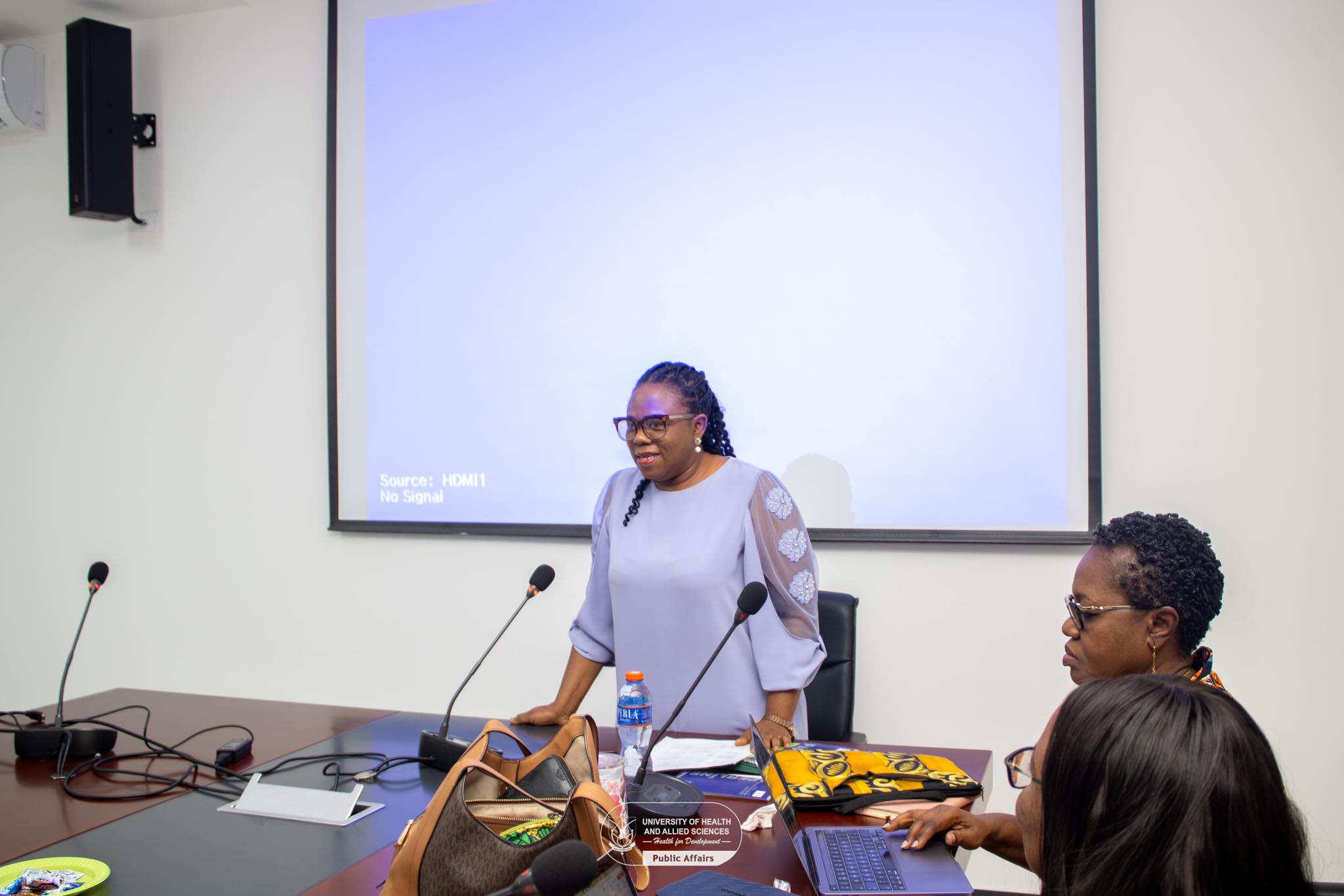 |
The workshop which centered on Implementation Research for Healthcare Access and Immunization Coverage lasted from Tuesday, January 28 to Friday, January 31, 2025 and had four participating teams; two from Ghana Health Service Headquarters, Accra, one from the Oti Region and one from UHAS Fred N. Binka School of Public Health, Hohoe.
Key workshop objectives included training sub-grantees on Implementation Research techniques, developing skills to engage with stakeholders effectively, building capacity to identify and solve healthcare implementation challenges and preparing for potential project extensions beyond the initial timelines.
In line with the workshop objectives, participants were taken through strategies for embedding research into mainstream service delivery, with a strong emphasis on co-creation and co-design approaches. There was also focus on collaborative problem-solving techniques, learning to design research that ensures local relevance and sustainable healthcare solutions with concentration on critical health research areas including malaria vaccination, seasonal malaria chemoprophylaxis and childhood immunization challenges like measles and rubella.
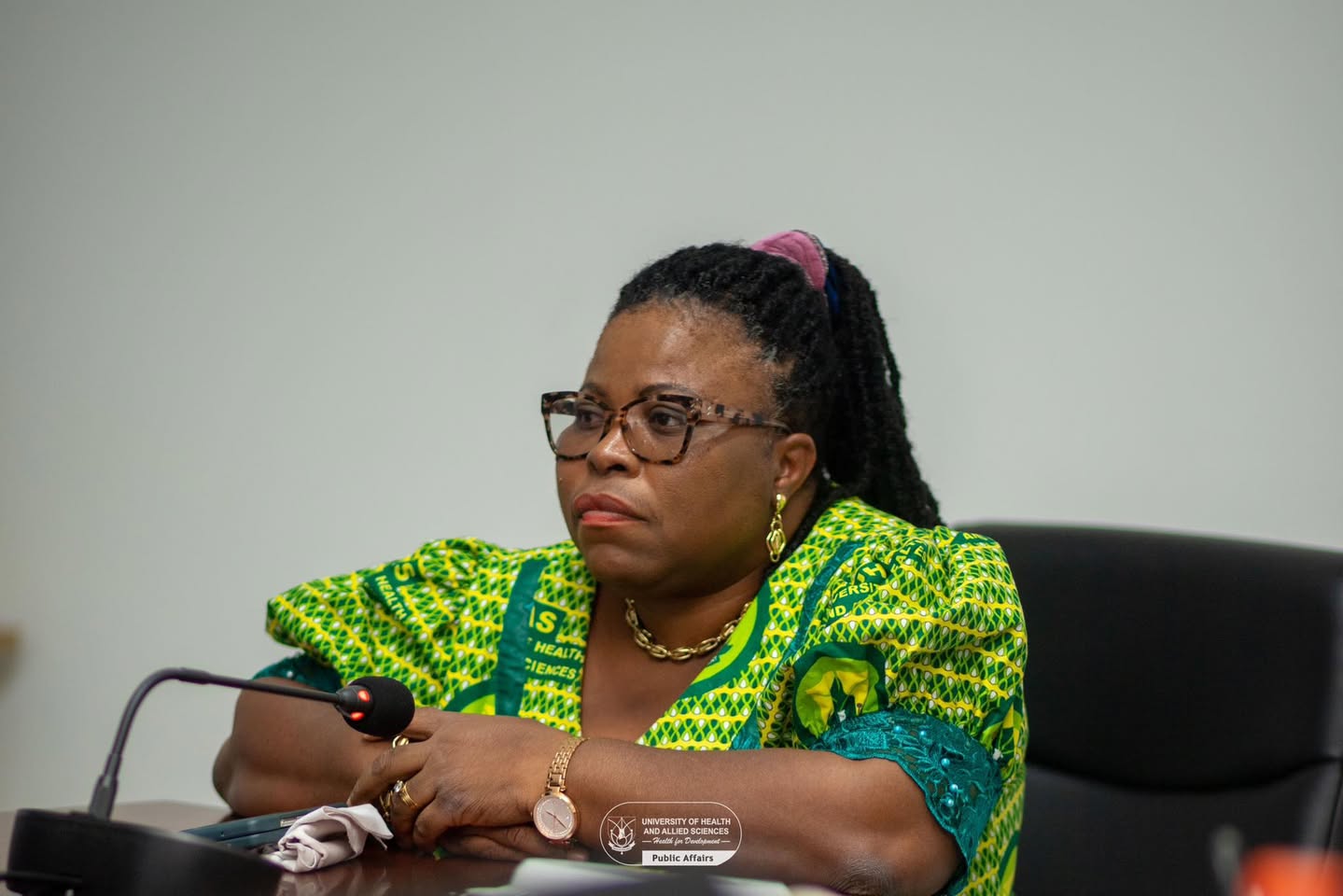 | 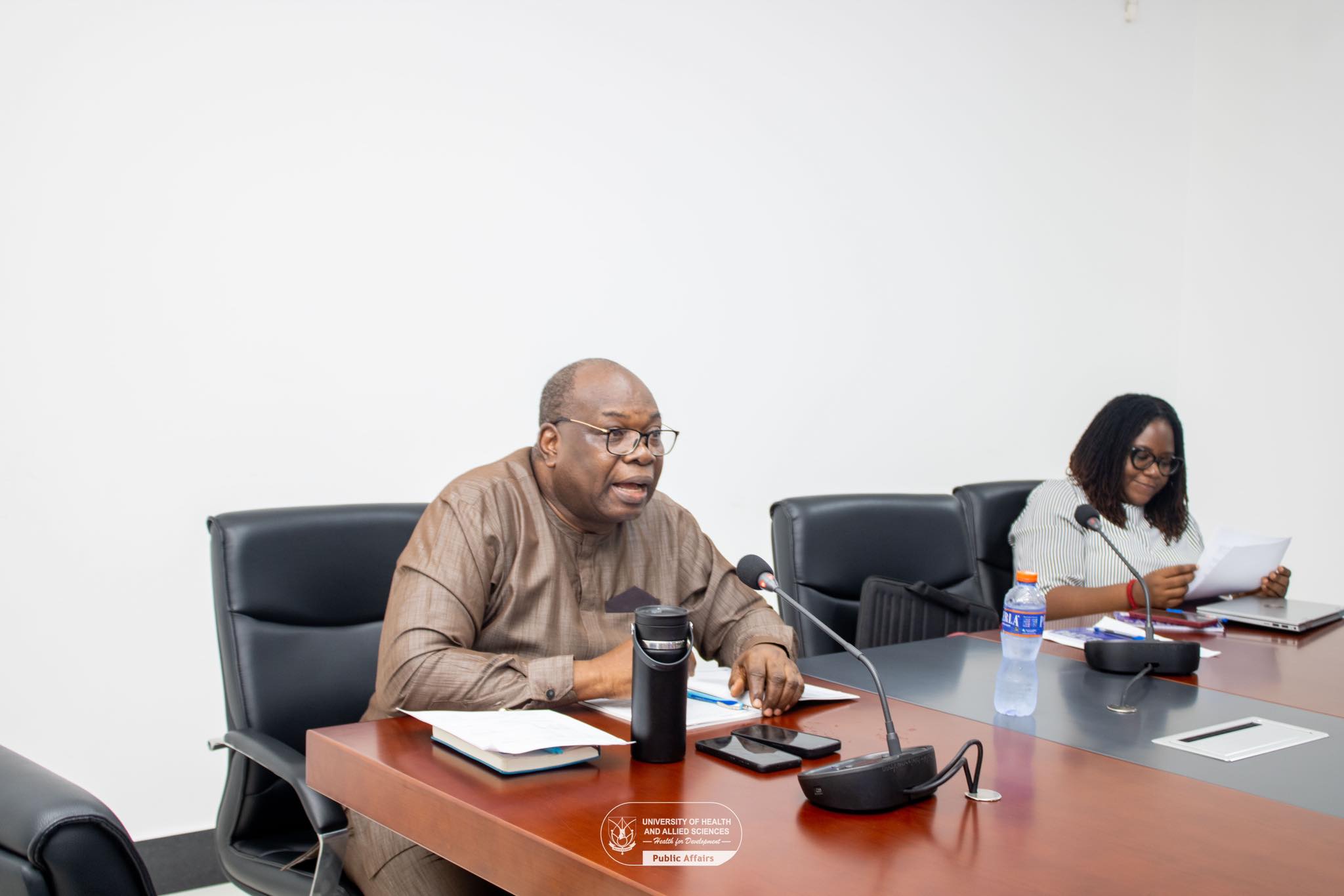 |
At the end of the four-day workshop, the participating teams were equipped with enhanced skills to develop robust research proposals and implement innovative approaches to healthcare challenges. The workshop represented a critical step in strengthening healthcare systems research capabilities in the respective catchment areas.
The Principal Investigator (PI) for the project is the renowned Professor of Health Policy Research, Professor Margaret Gyapong. Other seasoned health researchers working with Professor M. Gyapong on the project as co-investigators include Professor Evelyn Ansah, Professor Seth Owusu-Agyei and Professor Robert Alhassan Kaba, who are all staff of UHAS Institute of Health Research.
Implementation Research in health research simply is a scientific effort to understand why an intervention that has earlier on been proven effective in a particular area or circumstance often fails to achieve the same results when implemented in a different area or circumstance. It focuses on identifying methods and strategies that help put new ideas into action, particularly in the health systems or communities.
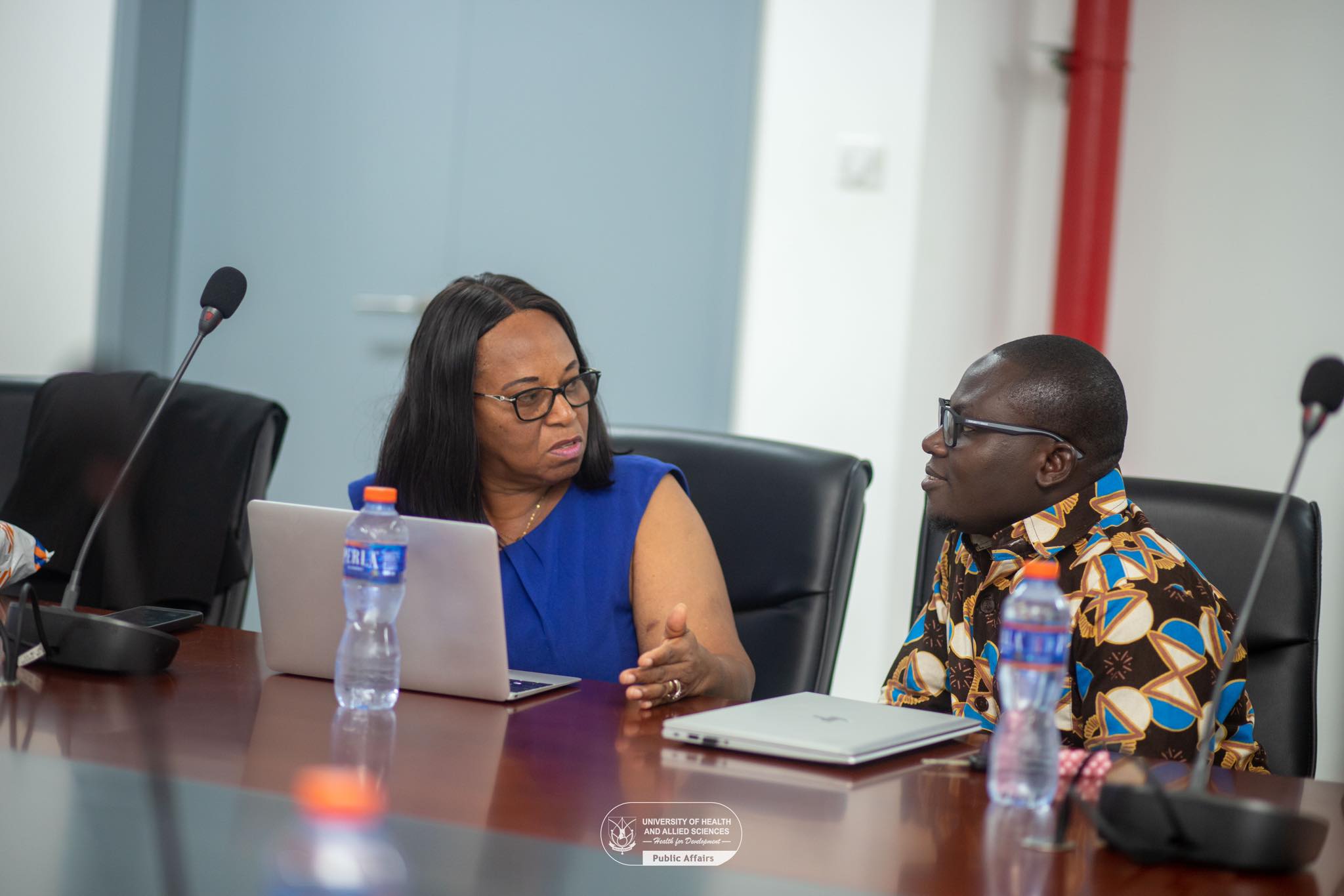 | 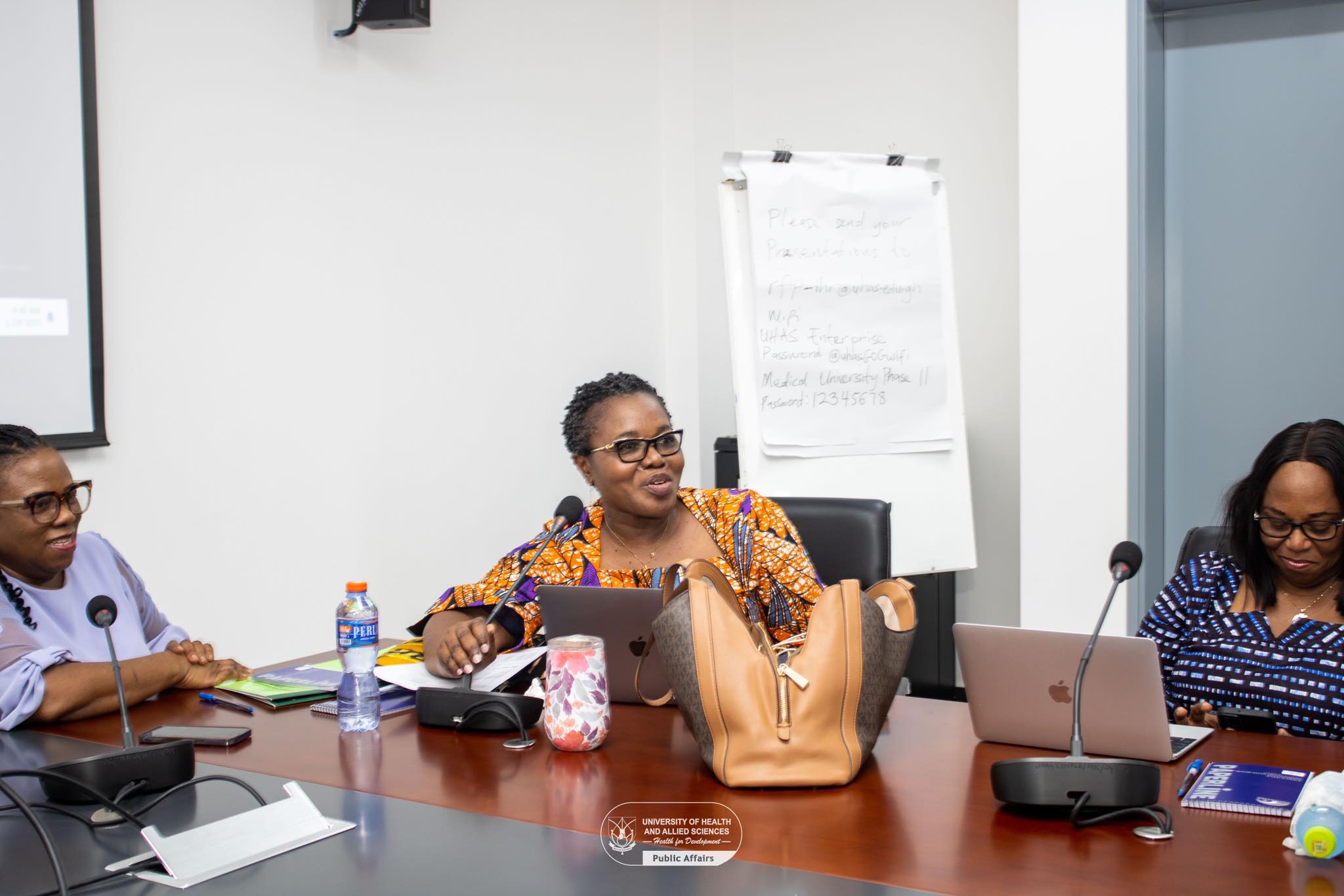 |
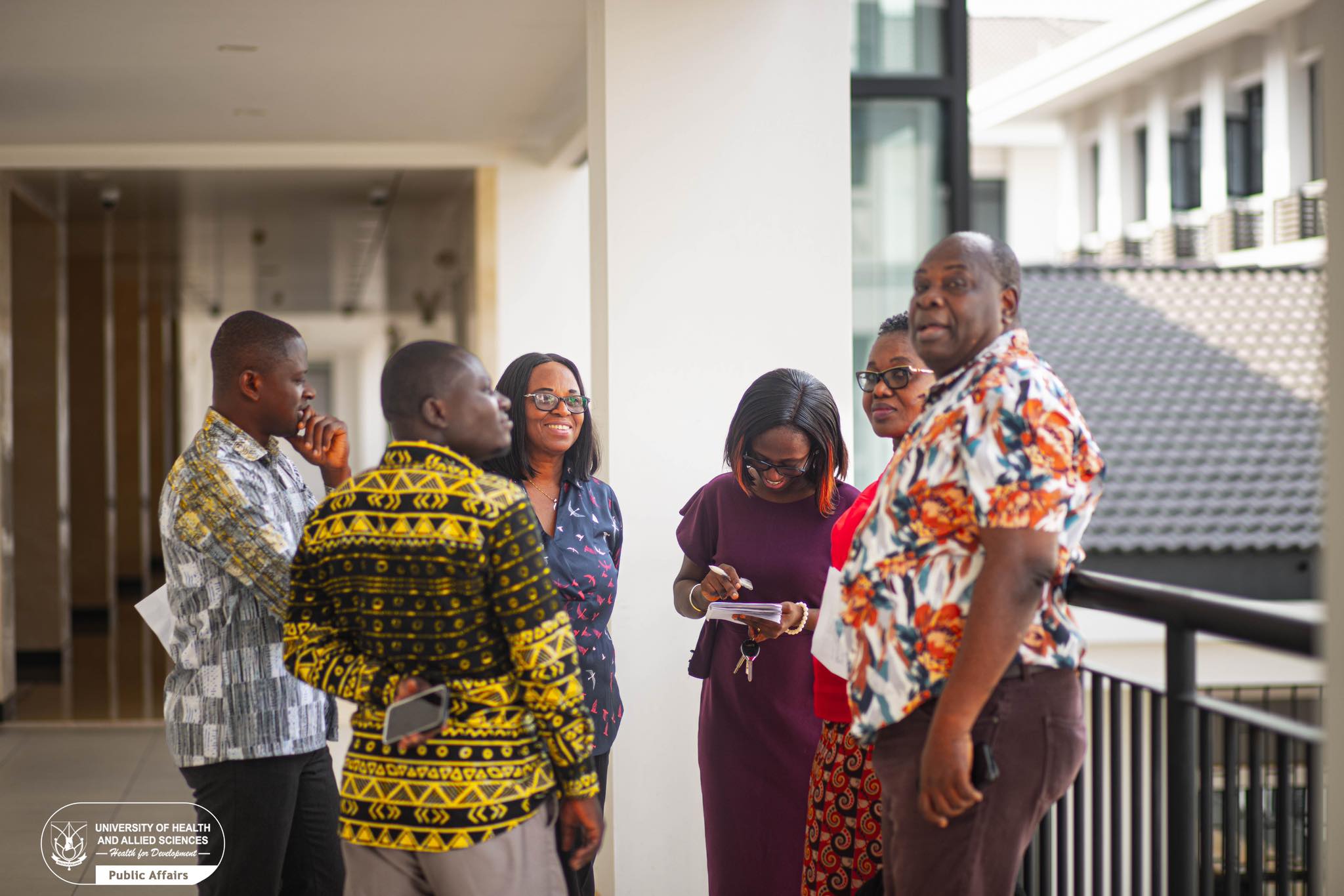 | 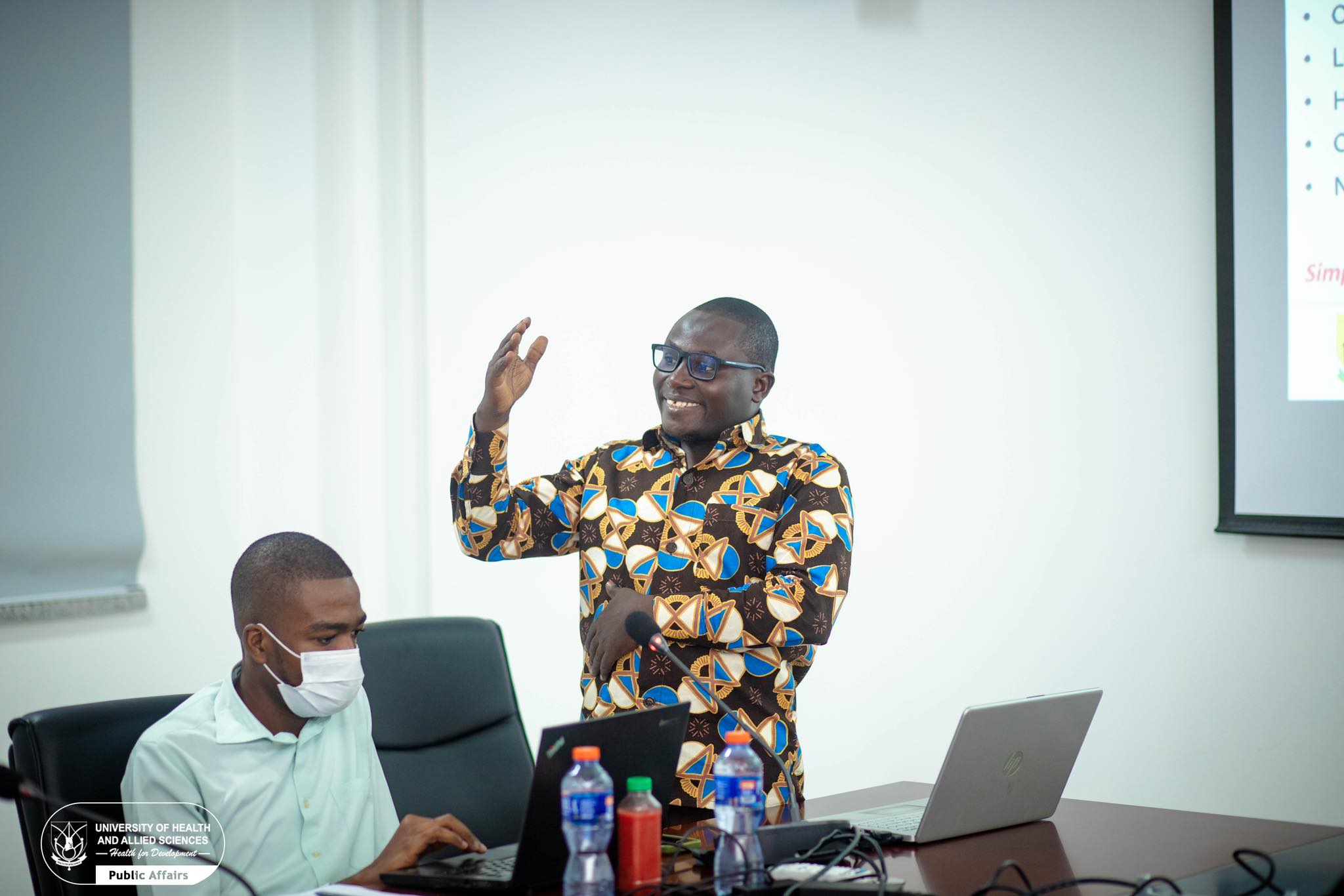 |